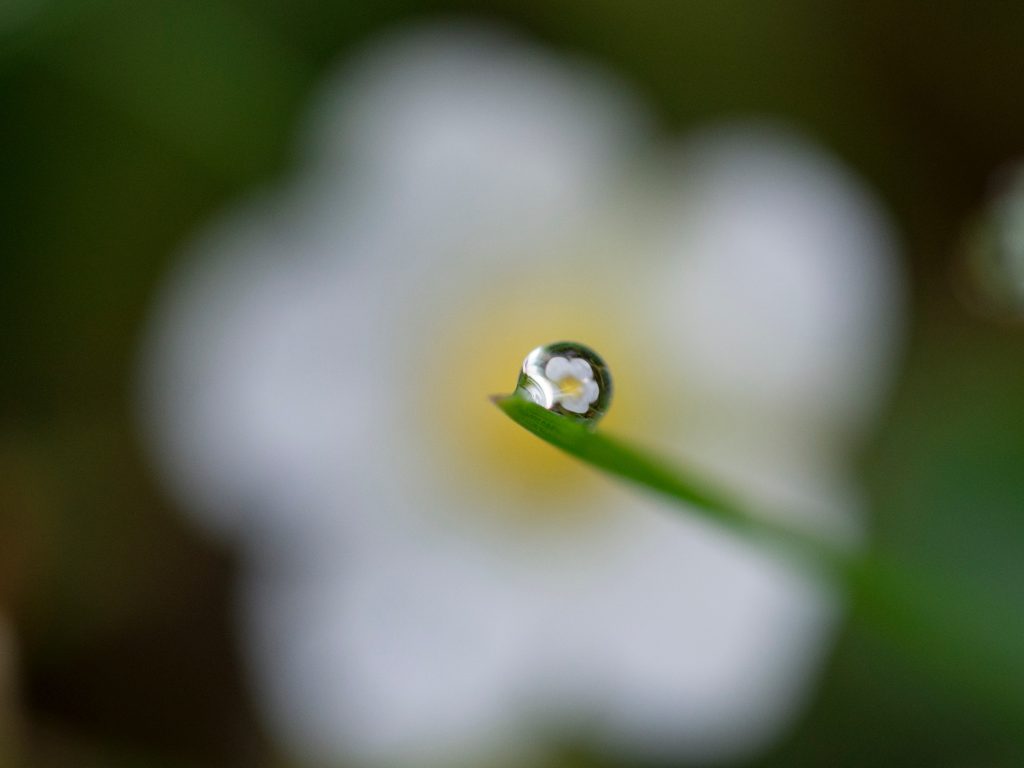|
Enjoy
Getting your Trinity Audio player ready...
|
In 2018, the Oxford English Dictionary added a new meaning to a snowflake- “an offensive word for a person who you think expects special treatment or is too sensitive to criticism and easily upset”. The polarised political scene, amidst global change and crises, has pushed a series of attacks on the age of millennials and gen-zs. It is not too surprising to hear another rant about today’s youth being described as too sensitive, lazy, stubborn and compulsive. The extent to which this is true or not, a question emerges what does it mean to be too sensitive beyond the political scene, in the mind and body? I recently encountered the term HSP- a highly sensitive person and learned there can still be surprising acceptance for sensitivity, including using this personality trait as a strength in today’s precarious times. In her seminal work, The Highly Sensitive Person: How to Thrive When the World Overwhelms You (1996), Dr Elaine Aron takes the reader through neurology and psychology to show sensitivity is not just about tantrums and stubborn children. The characteristic of being highly sensitive reveals an ability to process the world at a deeper level, possessing an intuition to notice and react to the world in greater detail. Her study beginning in 1991 continues to be a foundation for harnessing not denigrating sensitivity in its strengths and battles in improving mental health.

- Sensitivity and the common pejorative discourse
The common perception of sensitivity will likely fill people’s heads with images of spoilt children and hysterical adults. The voice of boomers can already be heard moaning about today’s kids being too weak compared to the older generation. “Oh, how entitled and fragile kids are nowadays” we are soon made to reminisce about the good ‘old times. A retrotopia of a time when people got to say what they wanted, without consequences. The point here is not to delve into a political debate but to highlight the way sensitivity particularly in the West takes on a strong pejorative meaning. Beyond our unprecedented times- no previous generation has been thrown so deep into a world wide web, entangled by social media, mental pressures with rising expectations, unlimited avenues of addiction, widening inequality and even more in the vast information age. But for the young generation to complain about the wrongs in society, the mistakes of the past, and take caution according to some stems from a deficiency called sensitivity. No one would think of looking elsewhere or deeper into what it means to be sensitive- before anyone can think, images, and videos quickly fill our space from the polarising sections of the media with arguments, tantrums, political/social identities, and calls for censorship. Being identified as sensitive now means being threatened with being thrown into society’s current cesspit- the liberal snowflakes. In this context, the divided political scene, it remains obvious why anyone would ever come forward to talk positively about sensitivity.

On the other hand, the western discourse has for a longer time propagated a gendered stigma around the sensitive personality. From TV shows, movies and images, it appears being a real man means being authoritative, burly and independent- purposefully opposing a daintier character of being cautious, and deeply attached to one’s thoughts and feelings as a sensitive person. The long list of hyper-masculine characters follows, i.e., James Bond, Indiana Jones, The Rock, Rocky Balboa, Marvel superheroes and more, showcasing to everyone the best they can get. And indirectly, how uninspiring a person who feels overwhelmed or delicate with the world can be.
These common perceptions of roles and beauty in the West understandably form practices within the home and school. Although the scene is gradually changing, it remains common to see parents and teachers brushing aside a boy’s timid character or a girl’s boisterousness as mere quirks, and pushing them towards these moulded icons. One would not be surprised to hear a parent denigrate their son with phrases such as “Grow up, stop being such a girl!”, “man up!”, “don’t be like your sister”, while letting girls “cry it out” or encouraging them to express their feelings by writing or private talk. It would seem from the surface this is how biology made us, sensitive girls and adventurous boys.
Many overlook, however, the way roles and beauty have many nuances across different cultures despite the similarities we see on the surface. The problem with this generalised parenting is the failure to see the personality as a fluid trait, evidently running across both sexes. The way we respond to our environment, perceive and respond, ultimately differs in more intricate ways within men and women. Boys can be as sensitive to emotions, behaviours and events as girls can be to being outward and adventurous. Therefore, the psychology of sensitivity offers a unique space to recognise and work with sensitivity across both genders without prejudice. It is not about political labels or tantrums. This is about the larger unpublicised side of people of either gender who process external stimuli at a wider level than those who simply do not. This is equally not about which group is superior but to draw out a deeper reading of sensitivity- the function it has played and how it can be used positively in mental health.

2. What is an HSP- how we are different from the non-HSPs
The term HSP comes from a psychological lens to describe a Highly Sensitive Person. This label is not used lightly. Sensitivity used by Dr Elaine Aron approaches the topic not as a mere ‘personality trait’ but as one that holds important distinctions between whose senses are stimulated more than others in situations and environments. She emphasises while we all have various senses, being a highly sensitive person means becoming over-aroused by the stimulus in one’s environment. Now the obvious question comes what does this really mean? Interestingly, many HSPs like myself have probably gone through their life unaware of this high sensibility to the external world. You may have gone through your life baffled by why you feel enervated from being around people or new situations; why you always feel the need to recharge while others plough on through the night in concerts and parties; why other people’s distress or anxious moments made you feel down; why small and large changes in your world make your heart race into madness; why you feel disturbed by loud noises; why you constantly chatter and contemplate with your inner self, thinking about your thinking a little too much. It doesn’t come as a surprise such sensitive people can feel lonely, they are reported to only make up 20% of the general population. Although the list is not a definite diagnosis, these are the distinctive, strong and common features found across all HSPs.
It becomes clear this is not just another attempt to develop a new identity in today’s postmodernist realm but a genuine focus on the fact there are some people more sensitive than others. Brain scans show HSP minds alerting to sounds, smells, sight and taste more frequently. Dr Elaine Aron (1996, p.7) uses an analogy of a fruit picker to succulently describe the difference in this perception processing. A non-HSP is likely to scan a fruit and check it for a few traits- i.e., 1-2 and pass it through to checkout. An HSP, however, can be seen as sensing more features in their surroundings, scanning the fruit for many more traits- i.e., 8 and only after passing it through to checkout. The highly sensitive person can thus be seen as commonly taking longer to make decisions, being more cautious, reflective and serious about present situations. On the other hand, being highly sensitive means your deeply absorbed situations and environment can become all too overwhelming. This is the core point where the HSP differs from the non-HSPs- exposed to too many stimuli, i.e. change and senses, an HSP will reach a point of transmarginal inhibition– a shutdown point in their nervous system (ibid, p.7-8). An HSP will feel frazzled and double-down in retreating away from their exposure, to a calmer, quieter place. Hence, in this very processing of senses, Dr Elaine is keen to emphasise that HSPs see the world differently as reflected by their unique characteristics so must adopt a different frame of mind from the common culture that views sensitivity only in a negative shadow.

3. How does sensitivity develop?
Now that we know there are distinguishable characteristics to an HSP, one’s mind will likely wonder why this heightened sensitivity exists in some people and not others. The immediate answer would appear genetics, as highlighted by Jerome Harvard, a psychologist at Harvard. He has spent much of his career studying sensitivity and claims it is as “observable difference as hair or eye colour”. His studies point to sensitive children showing a generally higher heart rate. When faced with stress, their pupils dilate sooner, and their vocal cords turn tense and reach a higher pitch (ibid, p.27-28).
Equally, one can look to the rest of the animal kingdom and also point to inherent differences in sensory perception. There are at least 100 other species with high sensitivity. Anyone with a cat will know this first-hand, they possess a highly sensitive character, reacting to the slightest noises and expressing deep affection. Yes, we must still remember humans are still vastly more complicated than the base instincts of other animals, we ultimately possess a conscious state to our thoughts, feelings and actions. For instance, it would be too simple to relate a person’s experience to that of an ant or a shark. Nevertheless, our brains are wired with a common instinct to survive. It is still possible to attribute deep, intuitive sensitivity to survival features strongly expressed in other sensitive creatives. As Dr Aron notes in her book, several researchers have pointed to two balancing systems in our brain which produce sensitivity (ibid, p.29-31). The first part is behavioural activation, the parts of our brain that provide us with the neurochemicals to venture out into the world. We may find ourselves curious and at times bold. It is the design of our brain to push us to search for ‘good things’, pleasure in life, like food and companionship, to survive. The other system of our brain is called behavioural inhibition. These are the brain’s senses that deter us from danger by making us alert, cautious and watchful for signs. According to this research, the struggle in balancing these two systems is what causes sensitivity- HSPs being curious and bold, yet cautious and anxious.

Beyond genetics, however, parenting has a significant impact on sensitivity in the complex nature/nurture combination. We already see many pathologies stemming from childhood experiences, where parenting shapes the anxieties and fears we hold in later life. In the same way, the level of sensitivity- reacting to situations, intimately ties to what we are told during this developmental stage. Dr Aron highlights most sensitive children come from a background of insecure parenting. They are often brought up on the perception of the world being too dangerous. Where the child’s intuition may have told them to explore and challenge, they will likely have been stopped and taught to clutch to their parent’s overbearing safety. This approval from retreating from the world appears strong enough to cause anxiety and avoidance beyond matters of survival in later life.
Living in a culture that rejects sensitivity, it is possible to see over-arousal being reinforced by labels and bad experiences. One of the most common labels applied to highly sensitive people is that we are “shy”. It would seem true, that while there are extroverts, most of us keep close social circles, avoid overexerting ourselves in social settings, and sometimes entirely avoid situations or places. Being ‘shy’ means then taking on a whole list of connotations- timid, scared, awkward and anxious. The problem here is while there may be some connection, being constantly told you are these traits reinforced the retreating behaviour. If you were simply being your sensitive self, it must mean then I am poor at socialising, incapable of handling people’s emotions, too ‘beta’ and physically broken in taking on new social settings.
As you can notice, this is a self-fulfilling prophecy, a spiral a sensitive person can fall into without knowing their sensitivity and its potential values. Dr Elaine Aron argues using the label ‘shy’ to describe highly sensitive people is inaccurate. Her studies powerfully emphasise sensitive people only appear to not want to socialise based on their reluctance to deal with over-arousal in new social settings (ibid, p.90-92). When given the appropriate conditions, however, (i.e., with small groups, those that listen, placed in calm environments), HSPs excel in leading thoughtful discussions. Their deep intuition suggests they even relish such close interactions, projecting their emotional sensitivity and overthinking into personal, hearty conversations. This scenario proves especially difficult to bring out given the finding defining 75% of the population (in the USA) are very socially outgoing.
Unfortunately, negative experiences can still have an impact on our inhibition system. A few bad experiences, especially when they form part of our impression of new events, can feed into the urge to retreat and possibly never return. (p.31). The release of cortisol can then shape our future behaviour. Without tackling this stress hormone, released after our triggered amygdala, we can notice our mind mulling over the horrid experience for what seems like an eternity, enough to cause us to cycle through escape avoidance behaviour.

4. Is sensitivity a good trait or a bad trait?
Whether we see ‘sensitivity’ at all is largely influenced by our cultural setting. Many will find it impossible to think of a place where highly sensitive people could be viewed as ‘normal’. HSPs themselves often proclaim a list of weaknesses they apparently possess; their lack of resilience, inability to bypass emotions and be decisive, more outgoing and competitive. Interestingly, little do we realise the way we perceive and represent sensitivity, as a characteristic to be even pathologized in the West, differs vastly from the attitudes and expectations in other cultures and places. The impact of culture on the way we see and use sensitivity appears so important that Dr Elaine tells us if there is to be one takeaway in her book it would be this comparative study:
“Xinyin Chen and Kenneth Rubin of the University of Waterloo in Ontario, Canada, and Yuerong Sun of Shanghai Teachers University compared 480 schoolchildren in Shanghai to 296 in Canada to see what traits made children most popular. In China “shy” and “sensitive” children were among those most chosen by others to be friends or playmates. (In Mandarin, the word for shy or quiet means good or well-behaved; sensitive can be translated as “having understanding,” a term of praise.) In Canada, shy and sensitive children were among the least chosen. Chances are, this is the kind of attitude you faced growing up.” (Cited in 1996, p.15)
This snippet allows us to get an idea of how the term ‘sensitivity’ would be used in an entirely different paradigm, perhaps not even used in the first place to pluck out those more self-conscious, overly contemplative and affectionate. Rather, as it appears in some Eastern cultures, HSPs would be hailed as possessing praiseworthy traits. They would be in the majority, as the norm whose characteristics are expected by and popularised by their cultural settings. Those showing low sensitivity to others, in contrast, could therefore be perceived as lacking the strength to thrive in their social settings.
Highly sensitive people can therefore be reassured they are not aliens in the West. Whatever social pressure they face, to toughen up and be more outgoing, derives from their specific time and place. HSPs who feel like outcasts need to look to the wider international setting. Many will see on this global level, that the richness of cultures and depth in cultural norms can make high sensitivity as much strength to be expressed as it is a weakness in popular discourse. This holistic view can push HSPs in a non-HSP world to avoid retreating further from their surroundings and come out using their overwhelming intuition to express, create and connect parts of society.

5. Why Highly Sensitive People remain important in today’s age:
“HSPs tend to fill that advisor role. We are the writers, historians, philosophers, judges, artists, researchers, theologians, therapists, teachers, parents, and plain conscientious citizens.” (1996, p.18)
We can now see sensitivity is not solely a weakness or a symptom of the disgruntled. The introspective nature of many HSPs, reflecting deeply and having a strong connection to people’s feelings, push this gentle group into society’s moral, spiritual and creative battle. While others scrap in social drama, HSPs relish the chance to retreat and advise; whereas others clutch to the luxuries of the material world, HSPs realise there is a deeper meaning in their existence, relationships and community. Rather than falling deeper into the dog-eat-dog system of capitalism- with cut-throat business and showmanship, they can be members and leaders who bring personal care and duty to the otherwise alienating workplace. Instead of letting people feel left out or lashing out in frustration, HSPs will rely on their analytical nature to pick up on nuanced feelings, finding avenues towards consensus. Their congenial attitude also offers greater chances to discuss matters privately as more than just colleagues, to build personal and lasting connections.
However, this is not about forming a cult group or a new identity but seeing the importance of sensitivity to human life. Being conscious means carrying a heart as well as a brain, reaching out to others, showing care, and kindness and in turn nourishing our hearts with values to better this world. Holding greater sensitivity is not about spearing oneself onto a lonely island, demanding everything is brought to your port and you are the only sovereign in the land. This seems to fit a different kind of sensitivity, an overreaction to the world wound up by the bigger common enemy- ego. Having a go at the supermarket worker for their attitude, who is probably already exhausted by rude customers, working weekends and being paid the bare minimum; getting riled up at a barista for the wrong coffee while they frantically serve their morning customers. This is not about sensitivity to the outside world, being aware of the many causes and effects, but an overarching interest to be special. The highly sensitive person must, therefore, like the non-sensitive people, express sensitivity in its truest form in a holistic way that encompasses everyone and not just themselves. Similar to Kant’s deontological ethics, we can strengthen our hypothetical imperatives by being more sensitive- pursuing our ends as a duty in which we proactively acknowledge our motive, end and impact on the people around us. If we always run away and keep strict boundaries, either ego or lacking self-worth from our refusal of wider reality will corrupt us. Therefore, everyone including HSPs must remember sensitivity is more fluid. By remaining sensitive to our feelings and the outside world, everyone can join HSPs in their conscientiousness to sew lines of moral good into every bit of life, and resist harm.

Conclusion:
In all, against popular discourse, sensitivity is not the sole cause of today’s reactionary social/political space. It would seem sensitivity is nothing but a weakness. From TV shows to Films, to social demands on the internet and sports, there is no social status in not being daring, outgoing and competitive in the dominance-oriented world. Sensitivity, however, is sometimes more than a mere personality and a reality of someone’s character. Dr Elaine Aron has shed a light on the HSP group- the highly sensitive people whose sensitivity, many unknowingly, belongs to a deeper feature of their existence spanning genetics, parenthood and trauma. Their sensitivity means overarousal when external stimuli quickly reach physiological discomfort. Many would have been told to ‘toughen up’, and feel ostracised in a society where the majority do not feel overwhelmed by new people, places, events, noises, self-doubt and competition. However, Dr Elaine Aron has shown us sensitivity is not all negative. By being more sensitive, there is a unique potential to be more self-aware, creative and emphatic towards caring for others. Taking away the Western cultural lens, we equally see sensitivity holds different perceptions and values across the globe, with some cultures embracing sensitivity towards being conscious citizens. Altogether, sensitivity like in other animals is a necessary feature. Highly sensitive people show us humans can harness not just reason but also intuition by staying sensitive to the thoughts and actions of everyone. In this sensitive realm, we can hope to pursue the moral good as a collective.

Working at Walmart says:
Nice post.
October 22, 2022 — 9:39 pm